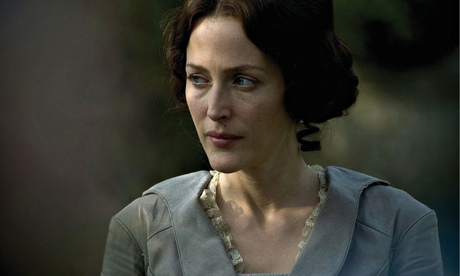
I had to abandon teaching Latin and Greek in secondary schools because of severe deafness, and applied to join Oxford’s schools examination board. Only weeks after my very first visit to Oxford for an interview, I found myself the chairman in charge of Latin, Greek, ancient history and English. I remember my first revision committee meeting with three Oxford dons and two experienced local teachers, revising the following summer’s question paper for A-level English literature.
The first part of the paper was headed “The floods are out in Lincolnshire” (my own county), with a passage beneath it from Charles Dickens’ Bleak House, on the style of which candidates would be invited to comment. I led the discussion nervously, maintaining that any candidate, after two years of study in the sixth form, would be able to cope adequately with the task.
One of my colleagues on the committee asked me at this point whether I had read the book in question. I decided to speak the truth, and said no. Another colleague then asked if I had ever taught English. Again my answer was no.
The woman on our committee then gave me a fascinating and succinct review of Bleak House, and thereafter I kept my peace and took notes as accurately as I possibly could, knowing full well that my opinion would necessarily be based on unworthy ignorance. In fact, I longed to get out of the meeting and get hold of what they all clearly considered to be one of the greatest novels in the English language. And they were right.
I have since religiously read the novel from beginning to end three times, and with ever-increasing delight and understanding. It was, and is, the greatest novel of the lot. Why? First, the quality of the writing; second, the complexity of the plot; third, the extraordinary insight and honesty of the characterisation.
I haven’t the space here to dwell on more than a few of the characters, or to do more than point to the amazing contrast between good and evil in “the damned human race”, as Mark Twain called it. We have Esther Summerson, the almost saintly young lady who plays a large role in the telling of the whole tale. Contrasting with her is the wicked, and wickedly named, Tulkinghorn, who sinks to the very bottom of human depravity. And for crime fans we have a mysterious murder, and Inspector Bucket, whom Dickens employed to discover the perpetrator of the hideous crime and who is frequently cited as the first significant detective in English literature.
And one more character, please! Contrasting with the high society life of Lord and Lady Dedlock (the latter with such a great secret to hide) we find Jo, the crossing-sweeper at the very bottom of the ladder.
In my later life it was a very rich experience to visit scores of theatres and institutions in the UK with Gabriel Woolf, who was frequently said to be blessed with the finest speaking voice ever heard on the wireless. Together we chose a dozen or so well-known poems or individual passages from great prose works, about each of which I spoke for no more than five minutes, with Gabriel doing all the readings.
We almost always attracted a full house and we enjoyed our evenings greatly, quickly realising the works our audience particularly favoured. What was invariably our greatest hit was the death of Jo, which Gabriel always read so movingly, so poignantly, so sadly, that many in the audience would be moved to tears. What effect would the final lines of chapter 47 have on you? Let’s try it. Poor Jo is dying, and with his last words repeats his friend’s prayer. Here is the final laboured conversation of Jo and the young doctor Allan Woodcourt:
“‘It’s turned very dark, sir. Is there any light a-comin’?’
‘It is coming fast, Jo.’
Fast. The cart is shaken all to pieces, and the rugged road is very near its end.
‘Jo, my poor fellow!’
‘I hear you, sir, in the dark, but I’m a-gropin’ – a-gropin’ – let me catch hold of your hand.’
‘Jo, can you say what I say?’
‘I’ll say anythink as you say, sir, for I knows it’s good.’
‘Our Father.’
‘Our Father! – yes, that’s very good, sir.’
‘Which art in heaven.’
‘Art in heaven – is the light a-comin’, sir?’
‘It is close at hand. Hallowed be Thy name.’
‘Hallowed be Thy –’
The light is come upon the dark benighted way. Dead!
Dead, your majesty. Dead, my lords and gentlemen. Dead, right reverends and wrong reverends of every order. Dead, men and women, born with heavenly compassion in your hearts. And dying thus around us every day.”

